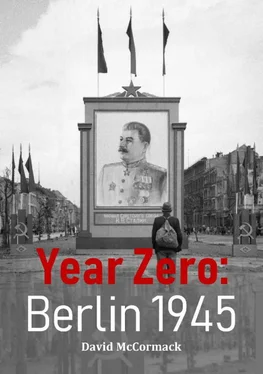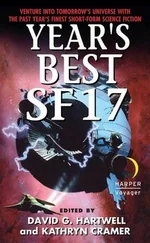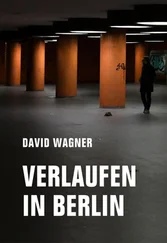At 05.00hrs (Moscow time), Colonel-General Gotthard Heinrici’s Army Group Vistula was attacked by powerful Soviet forces following a huge artillery barrage. In the critical central sector, Lieutenant-General Helmuth Weidling’s 56 thPanzer Corps defended the Seelow Heights with great skill and bravery. Zhukov’s attempt to storm the heights ended in dismal failure, the commander of 8 thGuards Army General Vasily Chuikov later recalled the debacle:
The artillery bombardment, using every gun and mortar, and reinforced by bombers and dive-bombers, lasted twenty-five minutes. In its wake, and under cover of a double moving barrage, the infantry and tanks moved forward. Hundreds of powerful searchlights lit up the ground in front of the advancing troops. The plan of attack was carried out strictly, to the letter, but real conditions made alterations of their own… On many sectors the troops came to a halt in front of streams and canals running across the Oder valley, waiting for the light of dawn to show them clearly the obstacle they had to overcome… The enemy put up particularly stubborn resistance on the Haupt canal, which runs along the valley round the foot of the Seelow hills. The spring floods had turned it into an impassable barrier for our tanks and self-propelled guns. The few bridges in the area were kept under enemy artillery and mortar fire from beyond the Seelow Heights and from dug-in tanks and self-propelled guns, all well camouflaged.
Here the advance of our troops slowed down more than ever. Until the engineers had crossings ready, they were brought to a dead halt. Any kind of manoeuvre by motor vehicles or tanks was out of the question; the roads were jammed, and to try and move across country, in this marshy valley with its well-mined fields, would have been fatal.
The chaotic scenes which characterised Zhukov’s initial attempt to take the Seelow Heights were later graphically described by Vladimir Abyzov who served as a rifleman in the 236 thGuards Rifle Regiment. His memoir entitled The Final Assault makes for interesting reading, in it he recalls:
We hugged the ground, waiting for the combat engineers to arrive. Shells continued to burst around us. Flares shot up into the grey sky. Eventually someone shouted, ‘We have a bridge!’ and the platoon jumped up and started to run again. We felt no fatigue and we didn’t realise that we were soaked to the skin. We didn’t even notice night change into day. Beyond the canal there was no mud, though there were many shell craters in the ground. The field was green with silky winter wheat. We ran across this field till the enemy met us with a wall of fire. We fell to the ground and quickly began to dig in. For the first time, the sky was clear of clouds. We saw hills before us. They were not high, but rather steep, some of them crowned by church spires … The Germans could see us clearly as if we were in the palm of their hand. They spared neither shells nor bullets, but we held our ground. We did not fire back – it would have been useless, because they were well out of range of our sub-machine guns.
Zhukov did not take the news that Chuikov’s troops were pinned down calmly, as every minute lost would give his rival Konev some advantage in the race towards Berlin. In order to facilitate a more rapid breakthrough, he changed his tactics by throwing his tank armies into the fray. Far from achieving the breakthrough he so desperately needed, this ill considered move produced further chaos and confusion on the battlefield as his armour floundered on the muddy terrain. A German counter-barrage inflicted heavy casualties on Zhukov’s troops and armour.
Spurred on by the news that Stalin had directed Konev’s tank armies north towards Berlin, Zhukov renewed his attack the following day. By nightfall, the second German defensive line had been overrun, but resistance on the Seelow Heights continued. The following morning, Zhukov attacked again following another series of artillery barrages. At 07.00hrs, 5 thShock Army launched an assault towards Reichenberg and Munchehof. Heavy defensive fire soon brought the advance to a shattering halt. Chuikov’s 8 thGuards Army attacked at the same time in the direction of Muncheberg. Ignoring the danger of his exposed left flank, he urged his troops on towards the eastern approaches to Berlin. His determination paid off, and by the evening his troops had advanced to the Treibutz-Jahnsfelde line. Muncheberg was taken the following day after a brief check by a German flak unit near the Jahnsfelde crossroads. To the south, Konev’s tank forces were heading towards Zossen.
Despite the unfolding crisis, the authorities in Berlin seemed unable or unwilling to accept that the decisive moment had come. During his weekly ‘War Council’ meeting, Goebbels, in his role as the defender of Berlin, gave fanciful assurances to Hitler’s appointed military commander of the Berlin defence area (Lieutenant-General Hellmuth Reymann) that the city could hold out, stating that:
If the battle for Berlin was on right now you would have at your disposal all sorts of tanks and field pieces of different calibres, several thousand light and heavy machine guns, and several hundred mortars, in addition to large quantities of corresponding ammunition.
Shrouding himself from reality, Goebbels took to the airwaves on the evening of 19 April to congratulate Hitler on his forthcoming birthday and to praise his genius. In an impassioned, over-long and somewhat discursive address to the shrinking Reich, Goebbels attempted to rally the people with these words:
…Once more, the armies of the enemy powers storm our defences; in their wake, foaming at the mouth, international Jewry, which does not want peace because their diabolical aim is to see the world destroyed. But in vain. God will throw back Lucifer, as he has done before when the dark angel stood before the gates of power, back into the abyss from whence he came… Germany is still the land of loyalty; in the hour of danger she will celebrate her greatest triumph. Never shall history say that the people have abandoned their Fuhrer, or that the Fuhrer has abandoned his people. And this means victory.
That same night, Marshal Konstantin Rokossovsky reported to Stalin that his 2 ndBelorussian Front was now ready to go on the offensive. The following day General Hasso von Manteuffel’s 3 rdPanzer Army bore the brunt of Rokossovsky’s assault. The spirited defence mounted by Manteuffel’s troops over the next few days prevented a direct northern thrust against Berlin. However, their involvement in blunting Rokossovsky’s drive also precluded them from taking a more direct role in the defence of Berlin.
On the morning of 20 April, the 125 thRifle Corps of Lieutenant-General Frants I. Perkhorovich’s 47 thArmy stormed and captured Bernau. Meanwhile, General Semyon Bogdanov’s 2 ndGuards Tank Army had forged ahead of the infantry, cutting a swathe to the outskirts of Berlin at Ladenburg and Zepernick. At 11.00hrs, Major A.I. Zyukin ordered his artillery battery to fire on Berlin. Zhukov was then able to report to Stalin that elements of his forces were already engaged in the battle for the city.
That morning, Hermann Goering, the corpulent second man in the sinking ship of state awoke early at his estate near Eberswalde. His country house, named Carinhall in honour of his first wife who had died in 1931 was wired-up with explosives. As Rokossovsky’s guns boomed in the distance, a convey of Luftwaffe trucks prepared to head south, all were laden with Goering’s most treasured possessions. After speaking a few words to the commander of the departing truck column, Goering pressed down on the plunger which set off a tremendous explosion reducing his beloved Carinhall to ruins. Without looking back, he stepped into his waiting car which would take him to the Reich Chancellery in Berlin for Hitler’s birthday celebrations.
Читать дальше












